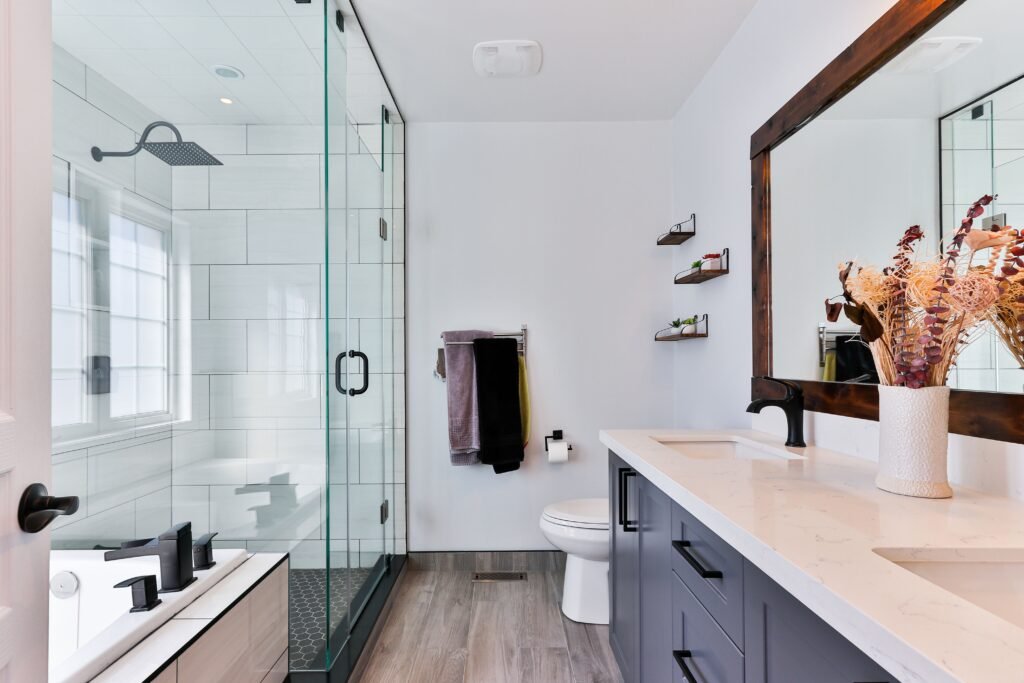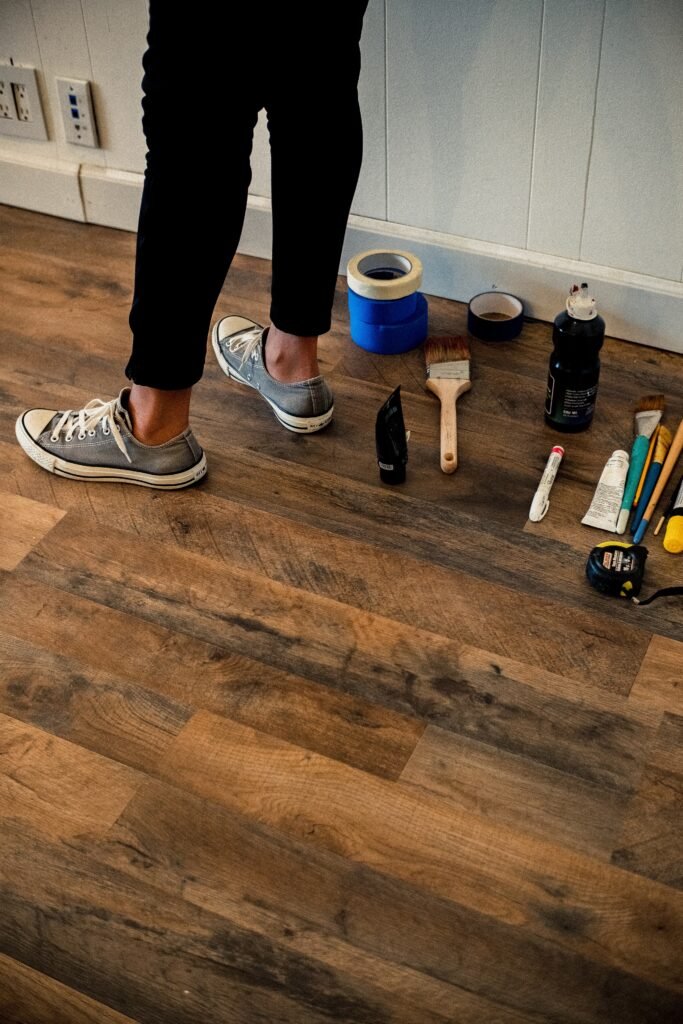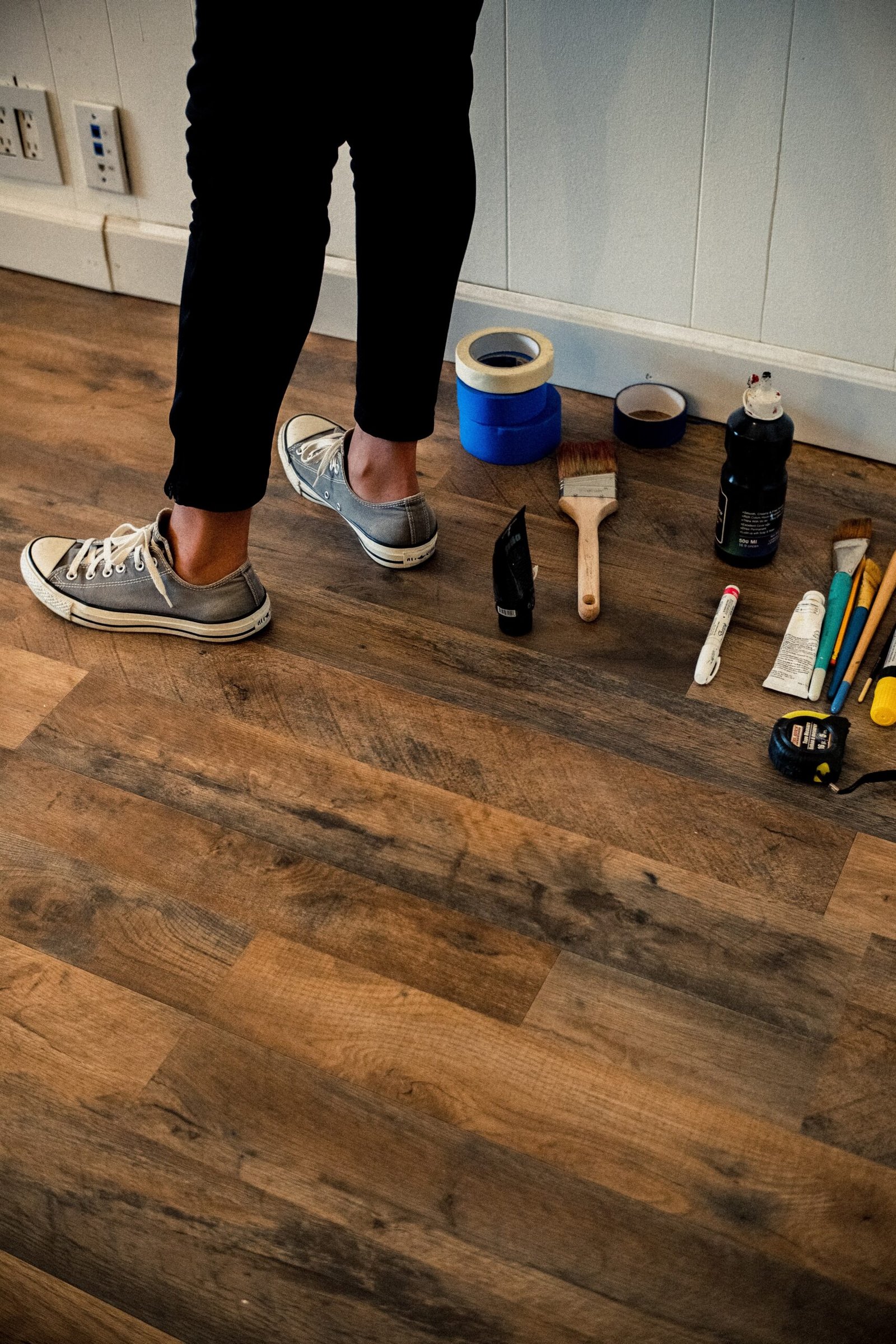One of the key considerations for homeowners is how renovations can affect the value of their property. You may be wondering which home improvements can increase the worth of your home, and which ones may not provide a significant return on investment. This article will explore the impact of home renovations on property value, providing insightful information to help you make informed decisions about your home improvement projects.

Understanding the Relationship Between Home Renovations and Property Value
When it comes to the relationship between home renovations and property value, it’s important to have a clear understanding of how these two factors interplay. Any homeowner considering investing in renovations wants to ensure that their efforts will increase the value of their property. In this comprehensive article, we will explore the various factors that influence property valuation and delve into the different types of renovations that can boost property value. We will also discuss the importance of proper planning, budgeting, and professional consultation to maximize the impact of renovations on property value.
The basic concept of property value
Before diving into the influence of home renovations on property value, it’s essential to grasp the basic concept of property value. Property value refers to the worth of a property in the real estate market. It is determined based on various factors such as the location, market conditions, property size, condition, and age. Understanding these factors is crucial as they provide a foundation for comprehending how renovations can affect property value.

How home renovations influence property value
Home renovations can play a significant role in increasing property value. By making strategic and well-planned improvements to a property, homeowners can enhance its attractiveness, functionality, and structural integrity. These improvements can make the property more desirable to potential buyers or tenants, thus increasing its market value. However, it is essential to choose renovations wisely and consider factors such as kitchen renovations, bathroom revamps, adding extra rooms or extensions, landscaping and outdoor improvements, roof and infrastructure repairs, and energy efficiency upgrades.
Factors Considered in the Valuation of Property
Several factors come into play when valuing a property. Understanding these factors is vital as they provide insight into the aspects that potential buyers or appraisers consider when assessing a property’s worth. Let’s take a closer look at each of these factors:
Importance of location
Location is undeniably one of the most critical factors in determining property value. Factors such as proximity to amenities, schools, transportation, and desirable neighborhoods all contribute to a property’s value. Renovations may have a positive impact on property value, but the location will always be a significant influence.
Role of market conditions
Market conditions, including supply and demand, interest rates, and economic factors, can have a substantial impact on property value. In a seller’s market, where demand exceeds supply, property values tend to increase, while in a buyer’s market, where supply exceeds demand, property values may decrease. While renovations can improve the value of a property, market conditions will still influence the overall valuation.
Influence of property size
The size of a property is another crucial factor in determining its value. Larger properties generally command a higher value, as they offer more living space and potential for redevelopment. However, it’s important to note that the size of a property alone is not enough to drive up its value significantly. The overall condition and layout of the property also play a significant role.
Effect of property condition
Property condition plays a pivotal role in determining its value. A well-maintained property is likely to have a higher value compared to one that is poorly kept or in need of significant repairs. Renovations that improve the condition of a property, such as fixing plumbing issues, updating electrical systems, or refreshing the interior and exterior, can positively impact its value.
Impact of property age
The age of a property can also influence its value. Older properties may require more extensive renovations to bring them up to modern standards, potentially decreasing their value. However, historical or well-preserved properties may have inherent value due to their unique characteristics. Renovations that preserve or enhance the charm of older properties can add value, while those that neglect these aspects may have a detrimental impact.

The Role of Home Renovations in Enhancing Property Condition
One of the key ways that home renovations influence property value is by enhancing the overall condition of the property. Renovations can tackle various aspects, ranging from visual appeal to functionality and even structural integrity. Let’s take a closer look at each of these aspects:
Making the property more attractive
Renovations aimed at enhancing the aesthetic appeal of a property can have a significant impact on its value. Repainting the walls, upgrading flooring, installing modern fixtures and finishes, and improving curb appeal through landscaping and exterior improvements are all examples of renovations that can make a property more visually appealing. These enhancements can improve the first impression potential buyers or tenants have of the property, therefore increasing its value.
Upgrading the functionality of property
Renovations that improve the functionality of a property can also contribute to its value. This could involve modernizing the kitchen with new appliances and storage solutions, upgrading bathrooms with efficient fixtures and better layouts, or adding smart home technology. By increasing the functionality of the property, homeowners can attract buyers or tenants looking for modern conveniences, ultimately increasing its value.
Improving the property’s structural integrity
Renovations that focus on improving the structural integrity of a property can have a long-lasting impact on its value. This could include repairing or replacing a damaged roof, reinforcing the foundation, updating plumbing and electrical systems, or ensuring proper insulation. When potential buyers or appraisers see that a property has undergone renovations to improve its structural integrity, they are likely to perceive it as more valuable and reliable, thus positively impacting its value.
Types of Home Renovations That Boost Property Value
Not all renovations are created equal when it comes to increasing property value. Some renovations have a higher likelihood of yielding a positive return on investment (ROI) than others. Let’s explore some of the most impactful renovations that can boost property value:
Kitchen renovations
The kitchen is often considered the heart of the home and is a vital focal point for potential buyers or tenants. Upgrading the kitchen can significantly impact a property’s value. This could involve replacing outdated appliances, installing new countertops and cabinets, improving the layout for better functionality, and incorporating modern design elements.
Bathroom revamp
Similar to the kitchen, bathrooms are a crucial area of focus for potential buyers or tenants. Renovating bathrooms can add value to a property. This may include updating fixtures, replacing old bathtubs or showers with more modern options, improving storage, and enhancing the overall aesthetics.
Adding extra rooms or extensions
Increasing the living space of a property by adding extra rooms or extensions can have a significant impact on its value. This could involve converting an underutilized space such as an attic or basement into a livable area, adding an extension for a home office or extra bedroom, or creating a granny flat for additional accommodation. By expanding the usable area, homeowners can appeal to a wider range of potential buyers or tenants and increase the value of their property.
Landscaping and outdoor improvements
Curb appeal has a powerful impact on a property’s value. Enhancing the outdoor areas through landscaping, adding a patio or deck, creating an attractive garden, or installing features like a swimming pool or outdoor kitchen can significantly increase a property’s value. A well-maintained and visually appealing exterior creates a positive first impression and can make a property more appealing to buyers or tenants.
Roof and infrastructure repairs
Renovations focused on repairing or replacing the roof, updating plumbing and electrical systems, or improving insulation are crucial for the overall condition and functionality of a property. Potential buyers or appraisers look for properties that are structurally sound and free from significant maintenance issues. By Investing in essential infrastructure repairs and upgrades, homeowners can increase their property’s value and attract buyers or tenants who prioritize reliability and efficiency.
Energy efficiency upgrades
With the growing emphasis on sustainability and energy efficiency, renovations that improve a property’s energy performance can have a positive impact on its value. This may involve installing solar panels, upgrading windows and insulation, or implementing smart home technology that optimizes energy usage. These improvements can make a property more attractive to environmentally conscious buyers or tenants and can help reduce energy costs in the long run.
Budgeting for Home Renovations
When embarking on home renovations with the goal of increasing property value, it’s crucial to have a clear budget in mind. Proper budgeting ensures that homeowners allocate their resources strategically and maximize their return on investment. Let’s explore some key considerations when budgeting for home renovations:
Determining a renovation budget
The first step in budgeting for home renovations is evaluating your financial situation and determining how much you can afford to spend. It’s important to set a realistic budget that takes into account the cost of materials, labor, and any potential unforeseen expenses. Homeowners should also consider obtaining multiple quotes from contractors to compare prices and ensure they are getting the best value for their money.
Estimating return on investment
Before committing to any renovation project, homeowners should research and estimate the potential return on investment. Different renovations have varying levels of impact on property value, so it’s essential to prioritize projects that are likely to yield the highest returns. Seeking advice from real estate professionals or appraisers can provide valuable insights into which renovations are most likely to increase property value in a specific area or market.
Understanding cost vs value
It’s important to differentiate between cost and value when budgeting for home renovations. Cost refers to the actual monetary investment required to complete the renovation, while value refers to the potential impact on property value. Homeowners should aim to strike a balance between cost and value by selecting renovations that offer a high return on investment relative to their cost. This can ensure that renovation expenses are justified by the increase in property value.
Implications of Overcapitalising on Renovations
While home renovations can add significant value to a property, it’s crucial to avoid overcapitalizing. Overcapitalizing refers to spending an excessive amount on renovations that surpasses the potential increase in property value. This can lead to an unfavorable cost-to-value ratio and potentially limit the financial benefits of the renovations. It’s important to be mindful of the following implications of overcapitalizing:
What is overcapitalizing
Overcapitalizing occurs when the cost of renovations exceeds the potential increase in property value. This could happen if homeowners invest in high-end finishes or luxury features that are not proportional to the value of the property or the local market. Overcapitalizing can result in a property being overpriced compared to similar properties in the area, making it less attractive to potential buyers or tenants.
Risks associated with overcapitalizing
The main risk associated with overcapitalizing is the potential for a negative return on investment. If the cost of renovations significantly outweighs the increase in property value, homeowners may struggle to recoup their investment when selling or renting the property. Overcapitalizing can also lead to the property remaining on the market for an extended period, resulting in additional holding costs and potential financial strain.
How to avoid overcapitalizing
To avoid overcapitalizing, it’s important to research the local market and understand the preferences and expectations of potential buyers or tenants in the area. Seeking advice from real estate professionals or appraisers can provide valuable insights into the optimal renovation approach to maximize property value. It’s also essential to set a realistic renovation budget and carefully assess the potential return on investment for each proposed renovation project.
The Role of Proper Planning and Professional Consultation in Home Renovations
Proper planning and professional consultation are crucial elements of successful home renovations. When it comes to maximizing the impact of renovations on property value, homeowners should consider the following:
Importance of a renovation plan
Before diving into any renovation project, it’s essential to have a clear plan in place. A renovation plan outlines the goals, priorities, and budget for the project. This helps homeowners stay focused and organized throughout the renovation process and ensures that resources are allocated effectively. Having a comprehensive plan also enables homeowners to communicate their vision to contractors or other professionals involved in the renovation.
Choosing a professional contractor
Selecting the right contractor is vital for the success of home renovations. Homeowners should invest time in researching and choosing a reputable and experienced contractor who specializes in the type of renovations they require. Obtaining multiple quotes, checking references, and reviewing previous projects can help homeowners make an informed decision. A reliable contractor will provide expert advice, ensure the renovations meet high-quality standards, and help homeowners avoid costly mistakes.
Seeking appraisals during planning stage
During the planning stage of home renovations, homeowners can benefit from seeking appraisals from real estate professionals or property appraisers. These professionals can provide objective insights into the potential value increase of proposed renovations. Appraisals can help homeowners prioritize renovations that are most likely to yield a high return on investment and avoid overcapitalizing. Seeking professional consultation ensures that homeowners make informed decisions and maximize the impact of their renovations on property value.
Case Studies of Successful Home Renovations and their Impact on Property Value
To further illustrate the impact of home renovations on property value, let’s explore a few case studies:
Overview of certain renovation projects
In this case study, we will examine three renovation projects: a kitchen renovation, a bathroom revamp, and a backyard landscaping project. Each of these projects was carefully planned, executed by professional contractors, and tailored to meet the preferences and expectations of potential buyers in the respective areas.
Property value before and after renovation
The kitchen renovation resulted in a complete transformation of the space, with new cabinets, countertops, and appliances installed. The property’s value increased by 20%, allowing the homeowners to recoup their renovation costs and make a significant profit when selling.
The bathroom revamp involved updating fixtures, replacing the bathtub with a modern shower, and enhancing the overall aesthetics. This resulted in a 15% increase in property value, making the home more appealing to potential buyers and garnering a higher selling price.
The backyard landscaping project involved the addition of a patio, a garden, and improved outdoor lighting. This transformation created an inviting and attractive outdoor space, increasing the property’s value by 10% and making it stand out in the competitive real estate market.
Impact on property sales
In all three case studies, the renovations had a positive impact on property sales. The carefully selected renovations appealed to potential buyers and allowed the properties to stand out in the market. The increased property value resulting from the renovations allowed the homeowners to achieve higher selling prices and attract buyers who were willing to pay a premium for the updated and improved properties.
The Do’s and Don’ts of Home Renovations to Boost Property Value
To ensure that home renovations have a positive impact on property value, homeowners should follow these do’s and avoid the don’ts:
Choosing renovations that appeal to buyers
Do: Research and understand the preferences and expectations of potential buyers in the area. Focus on renovations that are likely to appeal to a wide range of buyers and enhance the overall marketability of the property. Opt for timeless design elements and finishes that have broad appeal and will stand the test of time.
Don’t: Undertake renovations that are overly personalized or cater to niche tastes. This includes incorporating unique or unconventional design choices that may not resonate with the majority of potential buyers. Avoid investing in renovations that may be seen as too specific or limiting in their appeal.
Avoiding overly personalized renovations
Do: Focus on renovations that have broad appeal and can withstand changing design trends. Choose neutral colors, classic materials, and layouts that can easily adapt to different styles and preferences.
Don’t: Overly personalize renovations to suit your own tastes or preferences. While it’s important to create a home that reflects your personality, it’s equally crucial to consider potential buyers’ preferences when renovating with the goal of increasing property value.
Sticking to the planned budget
Do: Set a realistic and comprehensive renovation budget. Consider all the associated costs, including materials, labor, permits, and any unforeseen expenses. Stick to this budget to ensure that the renovation expenses are proportional to the potential increase in property value.
Don’t: Overspend or exceed the planned budget. It’s vital to maintain a clear understanding of the cost versus value for each renovation project and prioritize those that offer the highest ROI. Avoid making impulsive decisions or succumbing to the temptation of luxury features or finishes that may not justify the increase in cost.
The Long-Term Benefits of Home Renovations on Property Value
Home renovations not only have an immediate impact on property value but can also offer several long-term benefits. Let’s explore these benefits:
Increase in property worth over time
Well-planned and executed renovations can contribute to a steady increase in property worth over time. By creating a more desirable and visually appealing property, homeowners can attract buyers or tenants who are willing to pay a premium. The increased value resulting from renovations can have a compounding effect over the years, allowing homeowners to build equity and potentially generate a higher return on their investment in the long run.
Improving home living experience
Home renovations aimed at enhancing functionality and improving the overall living experience can have a profound impact on homeowners. Upgrading the kitchen, bathrooms, or outdoor spaces can create a more comfortable and enjoyable environment for residents. These renovations can also cater to changing lifestyle needs, such as creating dedicated home office spaces or incorporating energy-efficient features that reduce utility expenses. By investing in renovations that improve the home living experience, homeowners can enjoy the immediate benefits while also increasing their property’s value.
Investment value for the future
Home renovations can be seen as an investment in the future. By strategically improving a property, homeowners position themselves for potential financial gains when it comes time to sell or rent. Renovations that address market demands, enhance energy efficiency, or improve structural integrity can future-proof a property and ensure its long-term competitiveness. As the real estate market evolves and buyer preferences change, a well-renovated and properly maintained property will continue to hold its value and potentially yield higher returns.
In conclusion, home renovations can have a significant and positive impact on property value. By understanding the various factors that influence property valuation, homeowners can make informed decisions when it comes to selecting renovations that will maximize their return on investment. Proper planning, budgeting, and professional consultation are crucial components of successful home renovations. By carefully considering the do’s and don’ts and aiming for long-term benefits, homeowners can enhance their property’s value and create a more enjoyable and valuable living space.
